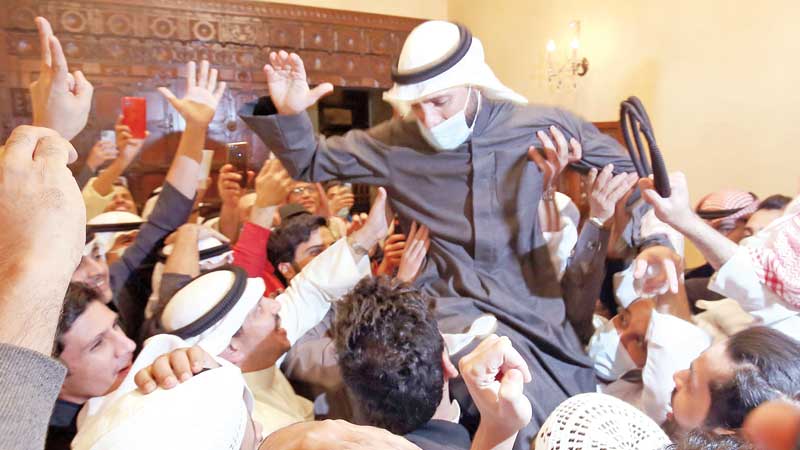

KUWAIT CITY: Kuwait’s opposition took nearly half of parliament’s seats in weekend polls, but the sole female lawmaker lost her seat.
Twenty-four of the National Assembly’s 50 seats were won by candidates belonging to or leaning towards the opposition, up from 16 in the last parliament, according to results announced on Sunday.
But while 29 women ran for office in Saturday’s race, none were elected. Nevertheless, the election of 30 candidates under the age of 45 sent out a promising signal to youth hoping for change and reform.
The election, which takes place every four years, was overshadowed by COVID-19 and a consequent paring back of campaigns.
Five polling stations — one in each electoral district — were specially fitted out to allow citizens infected with coronavirus to cast their votes.
The polls were the first since the new emir, Shaikh Nawaf al Ahmad Al Sabah, took office in September following the death of his half-brother, Shaikh Sabah al Ahmad Al Sabah, at the age of 91.
The country has the Gulf’s oldest elected parliament, but under the constitution the emir has extensive powers and can dissolve the legislature at the recommendation of the government. Thirty-one new faces will enter the new parliament, results showed.
The Islamic Constitutional Movement (ICM) won three seats, while candidates from the minority population won six.
“There is a big change in the composition of the new National Assembly,” Kuwait analyst Ayed al Manaa said.
“This is an indication of the voters’ anger over the performance of the previous parliament and of their desire for change in economic, health, education” and services, he said.
Kuwait’s economy and state budgets have been slammed by the double whammy of the pandemic and the depressed price of oil, with the International Monetary Fund expecting the economy to shrink by about eight per cent this year.
Officials in the country, where foreigners make up 70 per cent of the 4.8 million population, have already said they want to slash that proportion to 30 per cent of the total population.
Lulwa Saleh al Mulla, head of the Kuwaiti Women’s Cultural and Social Society, said she was hopeful about the new younger members in parliament, but disappointed by the lack of women’s representation.
“Still, the people participated positively in the polls for change and toppled some of the corrupt elements that distorted the image of democracy and abused their positions in the assembly,” she said. — AFP
Oman Observer is now on the WhatsApp channel. Click here



